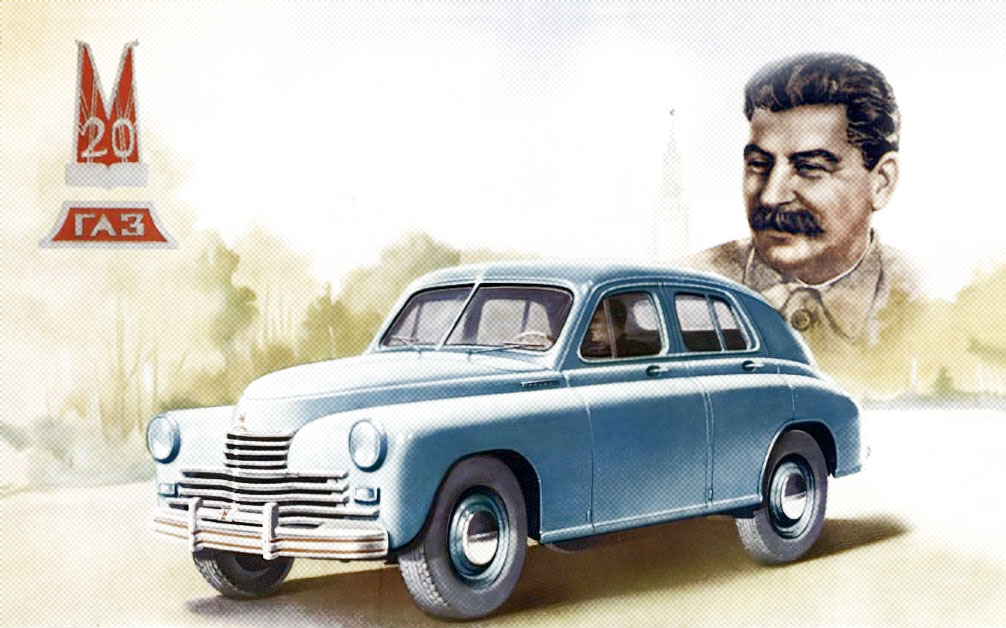As news of travel bans dominate our media and new walls are being built, it’s good to recall the travel bans in Eastern Europe during the Soviet era and read Ilmar Taska’s bestselling novel Pobeda 1946 aka The Dream Car.
Estonians know Ilmar Taska as an award-winning short story writer and film- and television director, producer and writer. Pobeda 1946 aka The Dream Car is Taska’s debut novel, and after reading it I’d like to exclaim: it’s perfection! The work could be molded into a film and a play, and why not an opera, too. The novel will undoubtedly gain international acclaim if the author locates the right publishers – but Taska, being the Hollywood man he is, certainly has the all the necessary professionalism required The book has already been translated into Finnish by Jouko Vanhanen and the largest Finnish publisher WSOY is releasing it in May 2017. Cornelius Hasselblatt is translating it currently into German and Christopher Moseley into English.
 Taska’s work contains all the archetypes, to which the Soviet era gave rise: victims, resistance fighters, collaborators, informants and torturers, survivors, silent sufferers, exiles, and the New Soviet men transplanted into occupied Estonia – the latter being a phenomenon, which the new regime used to stake out its superiority over the previous lifestyle; not to mention over people in various stages of ruin committed by that same regime. Taska gives everyone a voice in this moral grey-zone, into which the Soviet system thrust its subjects. Even so, Pobeda 1946 aka The Dream Car deftly avoids black-and-white attitudes and dispositions. The work is tactful and psychologically believable. Each character in it is the main protagonist of his or her own life through their logic and personality; through their goodness and evil.
Taska’s work contains all the archetypes, to which the Soviet era gave rise: victims, resistance fighters, collaborators, informants and torturers, survivors, silent sufferers, exiles, and the New Soviet men transplanted into occupied Estonia – the latter being a phenomenon, which the new regime used to stake out its superiority over the previous lifestyle; not to mention over people in various stages of ruin committed by that same regime. Taska gives everyone a voice in this moral grey-zone, into which the Soviet system thrust its subjects. Even so, Pobeda 1946 aka The Dream Car deftly avoids black-and-white attitudes and dispositions. The work is tactful and psychologically believable. Each character in it is the main protagonist of his or her own life through their logic and personality; through their goodness and evil.
The work’s main characters are simply referred to as “the woman”; her young son, a.k.a. “the boy”; and a mysterious figure who drives around in a brand-new Pobeda, luring people into the snares of the KGB – appropriately named only “the man”. Two other fascinating characters are woven into the story: an Estonian opera singer named Johanna, who is the woman’s half-sister; and her lover – London-based BBC Radio News anchor Alan, who is striving to get her out of the country. The alliance between the Soviet Union and the UK has chilled and Europe is being divided by the Iron Curtain. A small independent country – Estonia – is now a western Baltic province of the USSR with a large influx of immigrants. The travel ban enforced by the Soviet Union have forced Alan and and Johanna to communicate surreptitiously via Alan’s radio broadcasts. They don’t receive each other’s letters anymore because the letters are diverted to a desk of the secret police.

The work draws readers into predicaments that skillfully violate an age-old truth: never rat on your neighbor! Under the new regime, fellow citizens have become potential “enemies of the people”, whom the man must uncover and apprehend. Yet, a friendship planned between the man and the boy turns fateful for the whole triangle. The boy’s character might indirectly represent Taska himself, who was born after Stalin’s death to a family of Estonian intellectuals, whom had been deported to Siberia. In any case, the grand narrative that unfolds – one, which commences before the author’s own birth – makes itself known in his creative DNA.
Pobeda 1946 aka The Dream Car, reveals how the “sacred” notion of that new era rapidly dissipated. The materialistic Soviet selfishness that accompanied the new system diminished both empathy and a willingness to help one another. The lives of each character teeter on the brink of peril with any showing of camaraderie, while the new political atheism swiftly led to manipulation, exploitation and travel ban. Fear lurked behind everything in one of the most closed societies in human history.
The reader’s attention is riveted by scenes, in which the man’s behavior – dictated by the occupying regime’s guidelines – trivializes a value that is so vital to us all: trust. Monument to the cessation of trust (a binding element in love for one’s neighbor) is a situation, where passion erupts between two people who are ruled by a state of heightened sensitivity.
Taska has a fantastic ability to utilize all of the human senses while bringing his story to life: hearing, sight, smell, and touch. This sensory register is almost entirely absent from Estonian novels, save for poetry. Shedding light on a bygone era of turmoil, Pobeda 1946 aka The Dream Car undoubtedly speaks to us today as we steer through the world’s increasingly troubled waters.
Translated by Adam Cullen
Imbi Paju is an internationally renowned writer, journalist, and director. Her works, including the English-language documentary book and film Memories Denied, primarily focus on Estonia’s troubled 20th-century history.
Adam Cullen is a translator of Estonian literature and poetry into English. His translations were nominated for the Cultural Endowment of Estonia’s annual prize for literary translation in 2014 and 2015.






Imbi Paju’s beautifully written review analyzes Ilmar Taska’s spellbinding novel very well.
The Dream Car is a book that has the power to reconsider the history behind the iron curtain, the changing alliances, new borders.
It’s a multifaceted portrait of a boy overburdened with realities of a changing society, opposing ideologies and a dangerous fascination with beautiful things. (or a beautiful car)
Imbi Paju’s beautifully written review analyzes well Ilmar Taska’s spellbinding novel.
The Dream Car is a book that has the power to reconsider the history behind the iron curtain, the changing alliances, new borders.
It’s a multifaceted portrait of a boy overburdened with realities of a changing society, opposing ideologies and a dangerous fascination with beautiful things. (or a beautiful car)